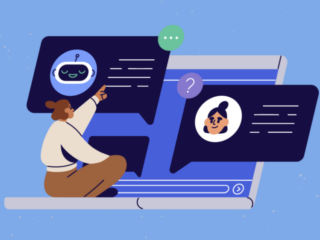Don’t know if its IMA and a bunch of different conference occurring right now, energy from recent internet marketing related news, or the planets aligning in perfect symmetry with the alien pyramids on Mars (ok, probably not the latter) but this has been a huge week for SEO and internet marketing related blog posts.
This week we have Google tracking you more than ever, SEO on your phone, Google and social search, audience segmentation models, net neutrality and more…
- We’ll start the week with a little news, first up search engine roundtable reports that Yahoo Site Explorer has added top queries report to its results
- Everyone is talking about it, Adobe is proposing to buy out Omniture.
- Google Gadget ads may be implementing browsing history as a way of targeting advertisements. This is actually a bit scary, I don’t like the idea that people are watching what I do, then targeting me with ads about it. It seems that at that point we’re moving into somewhat creepy territory.
- Want to do SEO work on your phone? Then you are insane. Go get help. Seriously. But if you’re really willing to accept your own insanity and want to become the SEO equivalent of a Batman villain, then check out SEOHostings article on SEO tools for the iphone. Just make sure that in your insanity you end up as a cool villain like Joker or Ra’s al Ghul and not some half-baked serial killer like Zsasz.
- Finally, Huo Mah asks “Can Google be a Social Search Engine?” A pretty good analysis over all of what Google is experimenting with (as far as user contribution to search goes), as well as a nice list of what’s wrong. In classic HuoMah style, lots of details, very little conclusion (the lack of futurologyesque [dont you love that word?] guessing is something to be respected)
- PPC and analytics really do go hand in hand, so this week we have ROI revolution on using GA to geotarget your PPC campaigns.
- To get a little more technical, uxmatters has an article onAudience Segmentation Models so as to analyze large user segments. Pretty decent audience research advice.
- “What a difference color makes“. Indeed it does. This is one of the better points Hamill has made on his blog in the last while: many companies restrict their design palettes to a single set, and don’t allow the use of colors that clash. However, to make a call to action stand out you frequently have to break your palette completely, become… acomplementry (what a day for made up words).
- Now to get REALLY technical, here is Scrolling Behavior with Single- and Multi-column Layout, from WWW 2009 Madrid! This study was undertaken by Clayton School of Information Technology, Monash University, Australia, and looks at how people prefer dealing with horizontal versus vertical scrolling. One of the key comments, which sums this up for me, is that we’re used to reading vertically on screens (not to mention the use of scroll wheels) and thus horizontal scrolling messes with out behavior patterns, making it irritating.
- Found this through twitter last week, Umair Haque writes that innovation is no longer the market driver, awesomeness is.
- Sixrevisions has 10 Revealing Infographics about the Web.
- It’s odd, the FCC goes around doing so much that I don’t like, but then every now and then they do something cool, like propose a plan to ensure net neutrality. Canada take note.
- Finally Social Media Today asks “Does Digital Kill the Poetry, Proust?” This hits one of my pet peeves: people who believe that because something changes it ceases to exist. In this case the argument is that once we start implementing a non-linear editing process (you don’t write drafts, you just rewrite what you have as you’re writing it) we lose these insights into the thought processes that people had as they were writing.Even without going into the statement that sifting through someones gmail box wont be the same because it isnt written or “The legacy of writers will no longer include the famed alternate ending. Instead, you will have Word Document version 65 of Chapter 15.” (both of which reeks of technological determinism), there is no reason to assume that somehow we will lose perspective on the past. Indeed we now have more information and context about the past being recorded than ever before.
What we lose is, as Social Media Today writes, “…the pleasure of seeing a great artist’s handwriting in a letter.” Indeed because as we move towards digital we move away from handwriting. However this is only, to be blunt, what it is. It isn’t a sign of lost poetry. What we lose is handwriting, and while that is a meaningful loss, it is still only that.

















